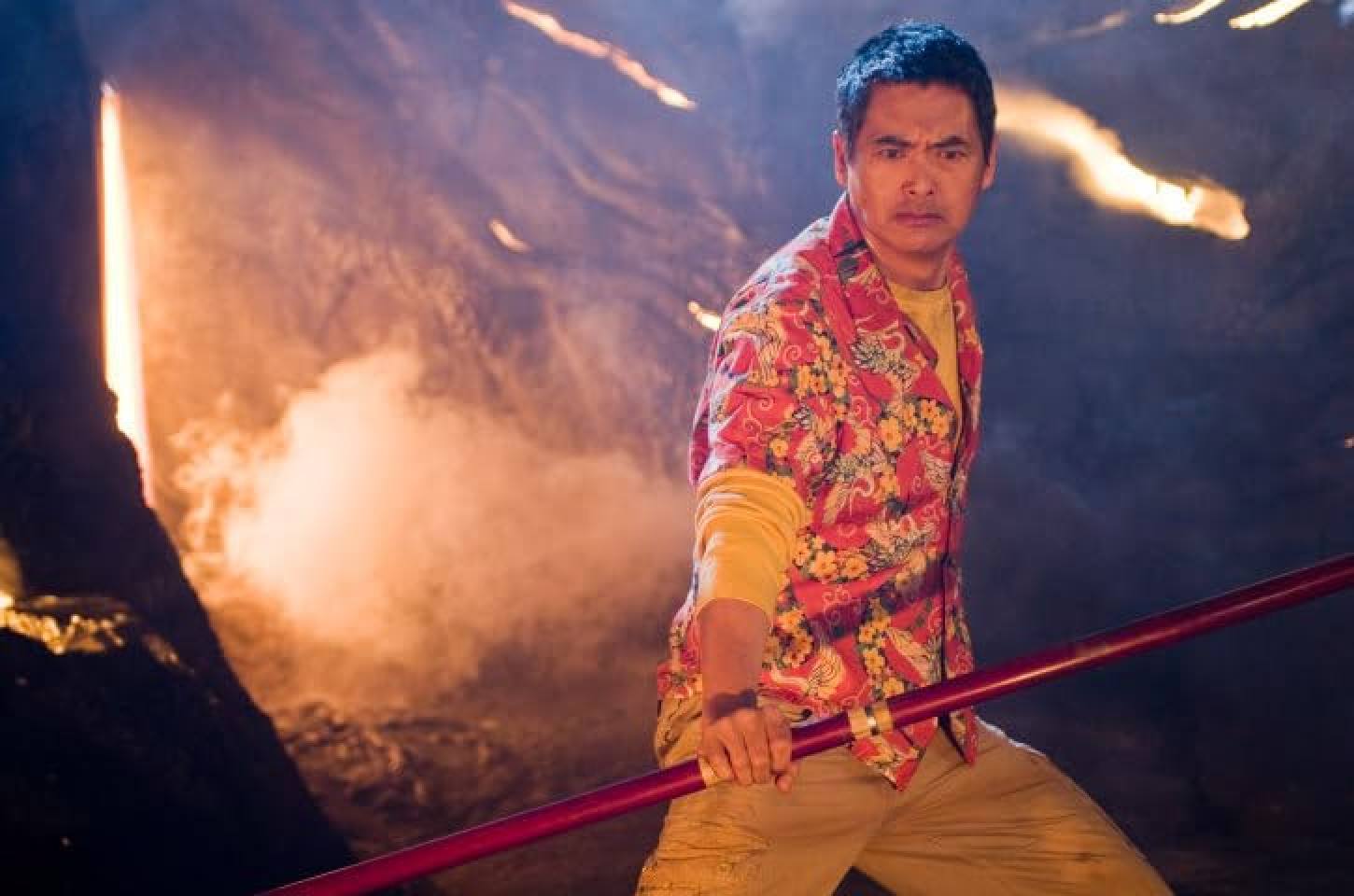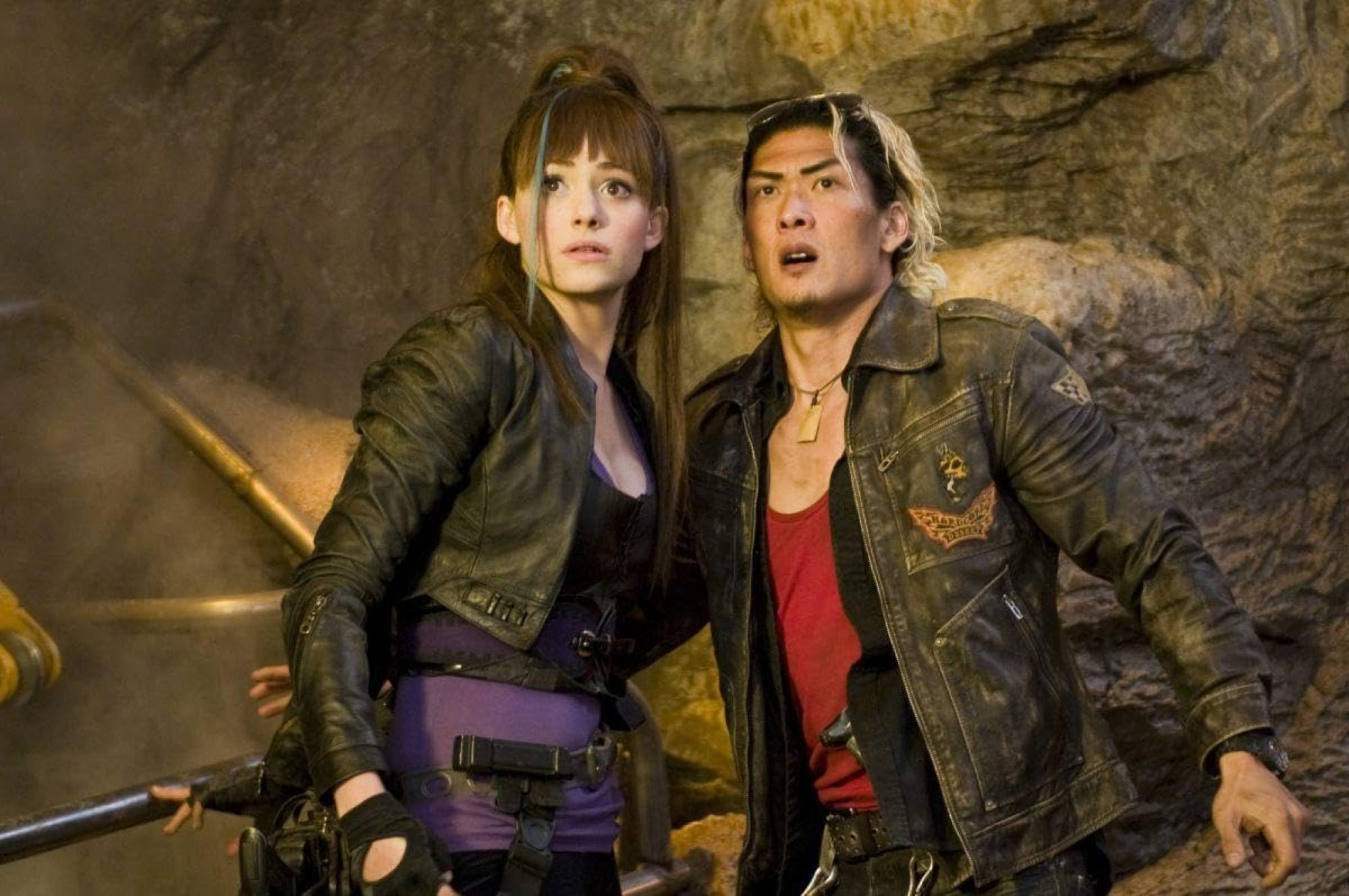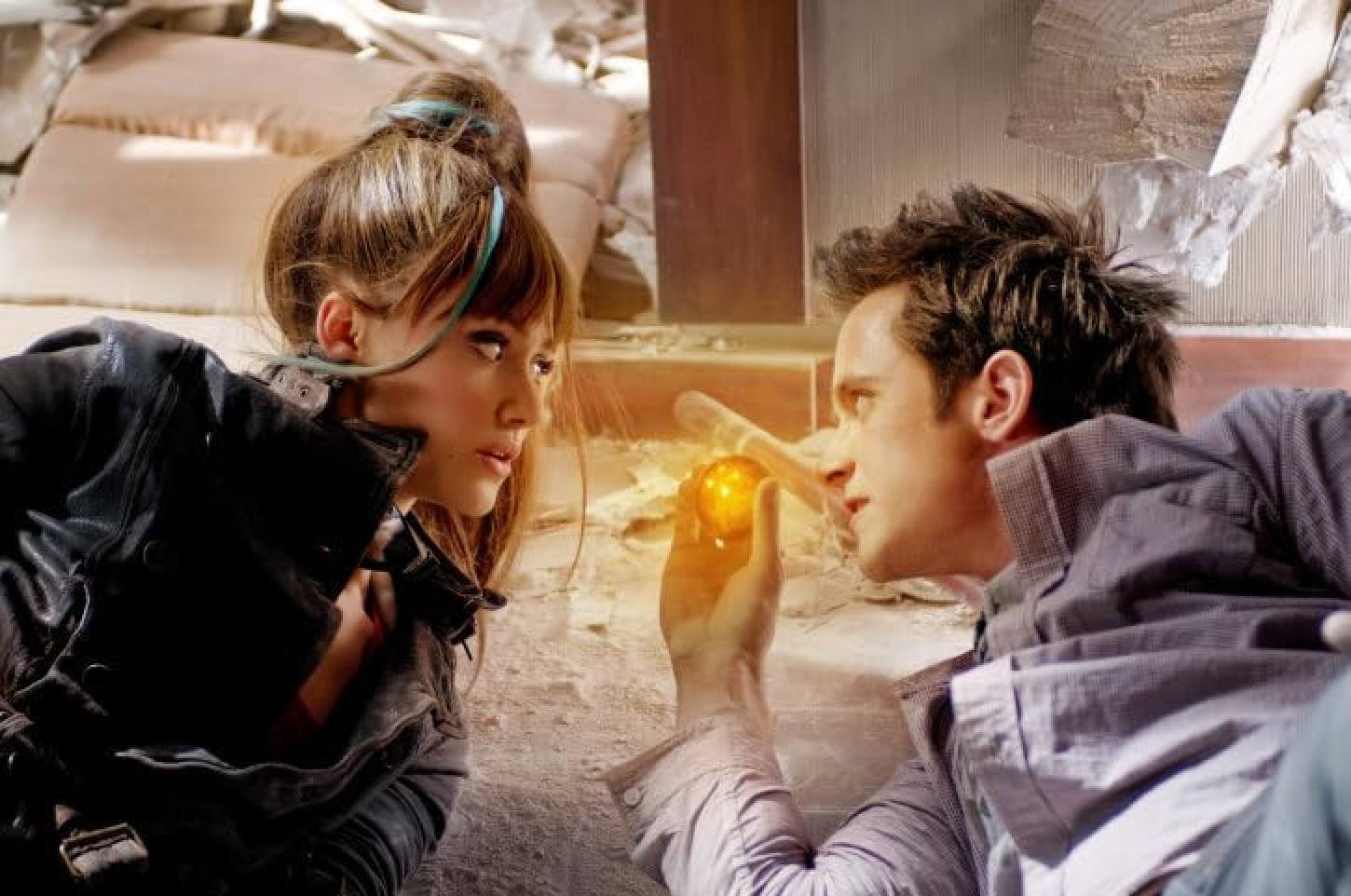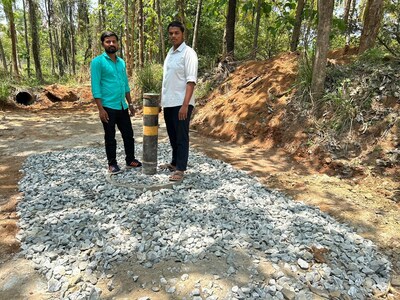Chan himself expressed interest in a live-action adaptation in 1995, but warned that it would require “a lot of amazing special effects and an enormous budget”.
“The big bosses told me it was a US$120 million picture,” said James Marsters, who played villain Piccolo. “[Then] when I get out to Durango, Mexico [where the film was shot], it’s a US$30 million picture […] they don’t even want to pay for the stuntman to get made up like me.”
The plot is hard to follow, even if – perhaps especially if – you’re a fan of the series. High school nerd Goku (Justin Chatwin) is given a magical Dragonball for his 18th birthday by his Grandpa Gohan (Randall Duk Kim).
When Piccolo and his henchwoman Mai (Eriko Tamura) kill Gohan, Goku sets out to foil their plans by collecting the rest of the seven Dragonballs, with help from Bulma (Emmy Rossum), Master Roshi (Chow Yun-fat) and Yamcha (Joon Park) along the way.
Thirty million dollars may sound like a lot, but it doesn’t go very far when it comes to creating convincing fantasy worlds. Shot in saturated colours, the film’s exteriors just look strange, with a few futuristic elements thrown in for good measure.
The interiors, meanwhile, were filmed in an abandoned jeans factory, and conjure exactly the levels of magic that suggests.

If Wong and co thought all this might be saved in post-production, they were wrong. The CGI is among the worst of any major movie of the era – especially an embarrassing sequence set amid a blazing volcanic landscape.
Ben Ramsey’s script is not much better. “I’m sorry I fired on you, I thought you were a murdering thief,” says Bulma as if speaking a second, or perhaps third, language.
Love interest Chi-Chi (Jamie Chung) gets the worst of it. “You’re different,” she tells Goku. “I like different! I know this may be hard to believe but we’re a lot alike.”
The sequence in which Goku imagines her, framed by fields of flowers and sucking on a big strawberry, is another low point.

In fact, Goku’s problem is not that he’s different, but that he’s so generic. Instead of a pure-of-heart warrior, he’s a horny schoolkid with terrible boy band hair and an expression that suggests he knows he’s in a derivative movie.
When Bulma says, “I have to have them all!” you wonder which manga series Ramsey and co were watching.
But the film’s biggest flaw is conceptual. While it’s easy to imagine the effect of studio pressure, casting Caucasian actors in Asian roles makes a mockery of the source material, which was inspired by Eastern mysticism and Hong Kong cinema.
As if the whitewashing weren’t bad enough, the Asian actors are barely more than window dressing.
Gohan chews on chicken feet and mutters self-help aphorisms such as: “You must have faith in who you are.” Yamcha is a bleach-blond bandit who communicates entirely in dude-speak such as, “No problemo.”

When the film was released it grossed just US$56.5 million worldwide. Critics were savage, audiences were confused and fans barely recognised their beloved characters.
Wong, a safe pair of hands who wrote for The X-Files and created the Final Destination franchise, has never directed another movie.
In the years that followed, both cast and crew have tried to make amends. “To have something with my name on it as the writer be so globally reviled is gut wrenching,” wrote Ramsey.

“To receive hate mail from all over the world is heartbreaking [but] I take full responsibility for what was such a disappointment to so many fans. I did the best I could, but at the end of the day, I dropped the Dragon Ball.”
When Toriyama died in March, Chatwin posted on Instagram: “Rest in peace brother. Sorry we messed up that adaptation so badly.” Amen to that.







